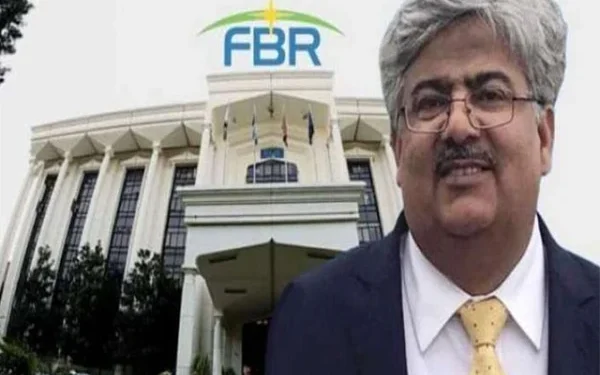This was revealed in a recent briefing given to the Prime Minister’s Office.
Islamabad:
The Federal Board of Revenue (FBR) has admitted that it is not possible to completely eliminate the Rs3.6 trillion sales tax deficit in the current fiscal year, the main reason for this is the informal nature and severe fragmentation of the retail sector, this was revealed in a recent briefing given to the Prime Minister’s Office.
According to the FBR, the sales tax deficit in the retail sector alone is Rs310 billion, which constitutes about one-tenth of the total deficit.
The FBR has claimed that the recovery of Rs874 billion in the previous fiscal year was possible only through enforcement measures.
When the Express Tribune asked the FBR for details of this claim on September 15, no response was given till the time of publication of the news. According to sources, the FBR told the government that the sales tax deficit can only be filled when there is complete monitoring at the retail level, but in the current circumstances, it is not possible to monitor the retail sector effectively.
According to statistics, in the last fiscal year, the FBR collected Rs 3.9 trillion in sales tax, while a gap of Rs 3.6 trillion remained. Against the backdrop of this admission, a new dispute has also emerged between the FBR and traders in Lahore, where the president of the Lahore Chamber of Commerce and Industry has threatened to resign from October 1, demanding the transfer of an FBR officer after a businessman was allegedly harassed.
In the past, various governments have taken steps to bring the retail sector into the tax net, including restrictions on large purchases and giving incentives to FBR officials.
The FBR now says that it will focus on tax enforcement at the manufacturing level because tax collection is more effective here.
The FBR told the Prime Minister’s Office that 12,805 taxpayers have integrated the system with a licensed integrator, with a total sales turnover of Rs33.3 trillion, which accounts for two-thirds of the total sales of Rs51 trillion last year.
According to the FBR, the highest tax deficit is in the textile sector at Rs814 billion, followed by petroleum and food sectors at Rs384 billion, chemicals and fertilizers at Rs326 billion, iron and steel at Rs200 billion, electronics at Rs193 billion and beverages at Rs101 billion.
While the sugar sector has a deficit of only Rs46 billion, the FBR’s attention has been unusually focused on it.
The FBR has claimed that due to better enforcement in the last fiscal year, the tax-to-GDP ratio increased from 8.8 percent to 10.24 percent and Pakistan is committed to the IMF target of taking this ratio to 13.7 percent by 2027.
On the other hand, a senior FBR official said that the agency had taken action against jewellers’ shops and furniture showrooms in Faisalabad, during which action was taken against more than 100 shopkeepers with the help of district magistrates and police.

























